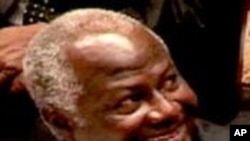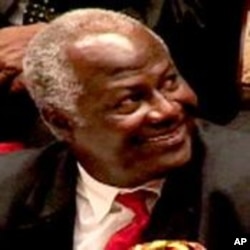The Chairman of Sierra Leone’s Anti-Corruption Commission says he has stepped up efforts to weed out corruption.
Abdul Tejan-Cole praised the legislature for enacting laws that he says boosts the commission’s anti-graft campaign.
“In terms of the legal framework, parliament has done a tremendous job in terms of giving the commission the capacity. It is also crucial to know that in terms of enhancing the operational independence of the commission, parliament has also given the commission the full powers not just to investigate now but to prosecute anti-corruption offenses without references to either the attorney general or to other government institutions,” he said.
Some fear the recent oil discovery could open the doors for more official corruption. But Tejan-Cole says such fears are not fully justified.
“It will be wrong to assume that because oil has been found so automatically it is going to be another curse for us. Everything will depend on how well we manage it and that is why …we have said that we need to make sure that the systems that are put in place regarding the entire oil industry are systems which are transparent and which are accountable,” Tejan-Cole said.
This year, Sierra Leone moved up 12 places in Transparency International’s global corruption rankings.
The rankings came after President Ernest Bai Koroma sacked two ministers over allegations of corruption.
But Osman Gblah, Dean of the faculty of social sciences and law at Sierra Leone’s Fourah Bay College, says despite commendable efforts, the Anti-Corruption commission needs to do more to weed out corruption.
“Corruption has been endemic it’s deep rooted in most African societies including ours. You really need not be complacent because of such efforts. You really need to put more effort to make sure that people that want to become corrupt are deterred from being corrupt,” Gblah said






